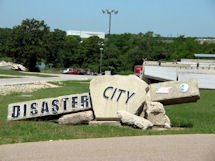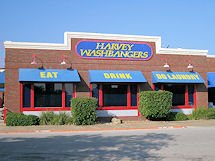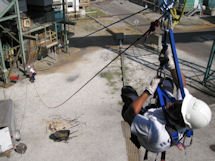Members from four companies of the Boston Fire Department’s technical rescue companies participated in this year’s high angle rope rescue program. The classroom instruction and equipment familiarization training was conducted at the Special Operations Command's training facility in Brighton. The practical applications were conducted at the tower behind Engine 2 and Ladder 19's quarters in South Boston.
Saturday, September 19, 2009
Thursday, July 30, 2009
Trench Collapse Rescue Training
Members of the Boston Fire Department’s seven technical rescue companies, as well as members from the Cambridge and Quincy fire departments, participated in this year’s trench collapse program. The members trained on rescuing victims from a straight wall trench as well as T and L trenches. The classroom instruction and equipment familiarization training was conducted at the BFD’s training academy on Moon Island and the trench collapse scenarios were conducted on Long Island.
Labels:
SOC Tech Rescue Training
Tuesday, April 7, 2009
BioPak 240R Refresher
Members from two of the Boston Fire Department’s seven technical rescue companies attend Biomarine BioPak 240 Revolution closed circuit SCBA refresher training for tunnel rescue. The firefighters must breathe the SCBA for a minimum of one hour. According to OSHA 1910.800, Underground Construction, rescue teams must review the use and limitations of breathing apparatus not less than annually.
Labels:
Drills
Saturday, January 31, 2009
Training Setbacks
 In these tough economic times, people only have enough money to spend on the bare necessities. And that includes the fire service. The division that the Boston Fire Department’s Special Operations Command (SOC) is attached to had to cut its expenditures by ten percent. As you can imagine, that expenditure cut has affected our equipment purchases, out-of-state travel for training and our ability to pay overtime for our technical rescue and hazmat adjunct instructors that augment our SOC cadre.
In these tough economic times, people only have enough money to spend on the bare necessities. And that includes the fire service. The division that the Boston Fire Department’s Special Operations Command (SOC) is attached to had to cut its expenditures by ten percent. As you can imagine, that expenditure cut has affected our equipment purchases, out-of-state travel for training and our ability to pay overtime for our technical rescue and hazmat adjunct instructors that augment our SOC cadre.In addition, we’re losing SOC’s current training facility due to a Harvard University building project called the Harvard Allston Science Complex. Harvard has been gracious enough to let us use another of its buildings in the adjacent Brighton neighborhood. However, we’ll be starting from scratch as far as preparing the building for training. Offices and classrooms have to be built as well as replicating the training props.
There was a glimmer of light that came through those dark clouds in the beginning of the week. We had a windfall of $350,000 that has been earmarked to spend on equipment for our seven technical rescue companies. That was good news. The money came by way of Urban Area Security Initiative (UASI) funding to the Metro-Boston Homeland Security Region (MBHSR).
We’re taking it one step at a time toward re-establishing ourselves. With any luck, we’re be back up and running in a couple of months.
Labels:
Commentary
Subscribe to:
Posts (Atom)




